In generous-spirited Poland, they hate only one man: the new Hitler
Rich and poor, Polish and Ukrainian, relief workers and police officers, all are united in one visceral emotion. They hate Vladimir Putin.
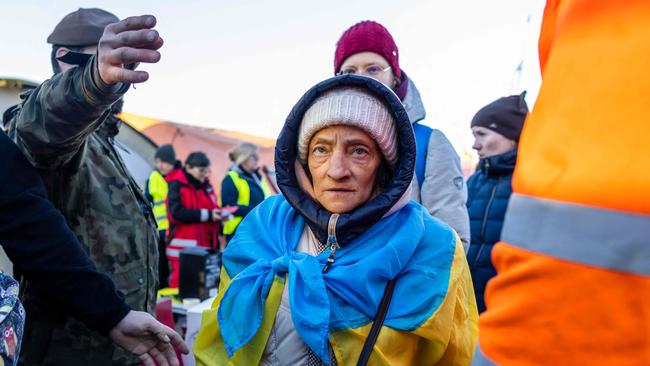
Across the expanse of the railway station I am drawn to him, sitting on a bench among dozens of other Ukrainian refugees.
Perhaps it is something in his eyes, tired but defiant, or perhaps it is the sight of his younger brother weeping as his mother sleeps fitfully after a journey of indeterminate length.
The boy beckons. “I can speak English a little,” he whispers. “My name is Oleksandr. Would you like to talk to me?”
I am in the Polish border town of Przemysl, and, to be frank, I am struggling to take it all in. It is a daunting privilege to witness the scenes of refugees huddling together in the cold, eyes haunted, bodies exhausted, fathers and husbands left behind to face pitiless bombing.
I am here to see the dynamics of this refugee crisis, but also the role of Poland. It is a nation that has been viewed as a backslider from Western values, a nation that abhors immigrants, a country that symbolises the crisis in liberalism.
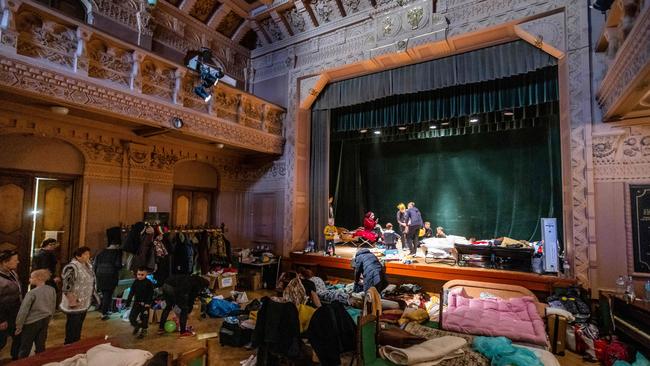
The longer I stay here, though, the more I detect the myopia of this narrative, pushed by supposedly more enlightened EU partners like Germany and France.
But let me return to Oleksandr, a little Ukrainian boy with a huge heart. His arms are around his brother as he speaks, in faltering English, not about his own suffering but about the responsibility he feels for his mother and sibling – he is but 12 years old.
“We travelled for three days and wondered if we would be killed by the aeroplanes,” he says. “But I didn’t want to leave Ukraine. I wanted to fight Putin with Papa.”
His mother, roused from her slumber, hugs him tight, a grown-up before his time.
I move across the concourse of the neo-baroque station, beautiful paintings above, misery down below. I speak to Tatiana and her four children, whose home in the Donbas region was shaken by aerial bombardment and who huddled in a basement for two weeks, cold, frightened, hungry. I speak to Maria from Kharkiv, who journeyed for six days to escape Vladimir Putin’s hell, with her six-year-old daughter Anna.
When I ask how they coped, she shows me a picture her daughter has drawn. It is a large smiley face, an image they look at whenever they feel frightened about the fate of the husband and father left behind.
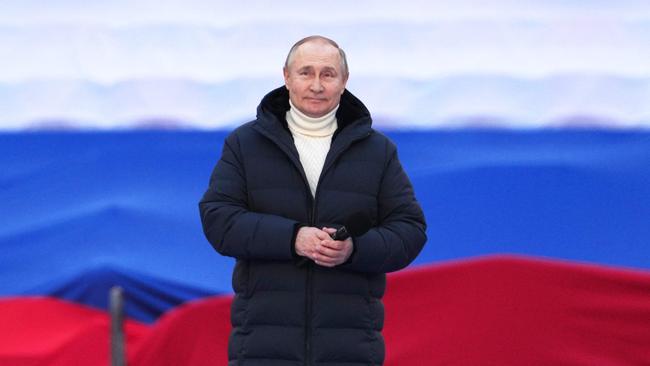
“The picture makes us feel happy and safe,” she says quietly.
With each story, a new pixel emerges in the panorama of the Tussian President’s unprovoked war, a new insight into its iniquity. In a narrow corridor I speak to Louisa, a grandmother whose memories reach back to World War II, sitting beside her daughter, Andzela, who is in a wheelchair after a stroke three years ago, and two grandchildren.
She is a retired chef and talks proudly of her speciality of rice, meat, grated carrots and onions. You can see her strength, her warmth, her wide brown eyes projecting into my heart.
“We didn’t want to leave our home,” she says. “We wanted to defy Putin. But we will not surrender; our men will keep going till the end.”
And this mention of Putin hints at perhaps the most salient factor in this border town. Rich and poor, Polish and Ukrainian, relief workers and police officers, all are united in one visceral emotion. They hate the Russian leader. They do so with such feeling that many recoil when I mention his name.
The hatred is not directed against the Russian people but against Putin himself: the man whose psychopathy led to this conflagration and the greatest European migration crisis since World War II.
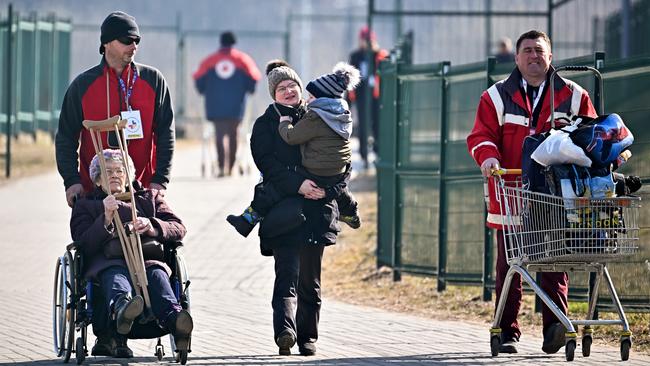
“I am Russian by descent but I want to kill Putin,” says Anna, holding the hand of her daughter. “I feel guilty to use these words. But when you think of what he has done, the lies he tells his own people, the innocent people he is willing to kill, can you blame me? I have a friend who has died. My husband is still there. He calls himself President but he is the new Hitler.”
The east of Poland is a landscape of rolling hills, scattered hamlets and smallholdings. I drive uphill to the border crossing at Kroscienko and note again the jarring contrast between the beautiful terrain and the tragedy contained in snaking lines of women and children heaving rucksacks and bags.
From my vantage point above the holding centre I see a hive of activity as children eat soup served from large cylindrical containers warmed by naked flames, and their mothers ask for information about what bus will take them to their temporary homes.
From here, the idea that Poland is a nasty and unwelcoming nation seems more than a little jarring. It is true that it pushed back against the EU relocation scheme for Syrians fleeing conflict in 2015, but it has thrown its arms around two million Ukrainian refugees, albeit mainly white and European.
There are whispers of public services becoming strained, particularly near Warsaw, and flare-ups between hosts and guests, but perhaps one might expect this when so many newcomers arrive so quickly.
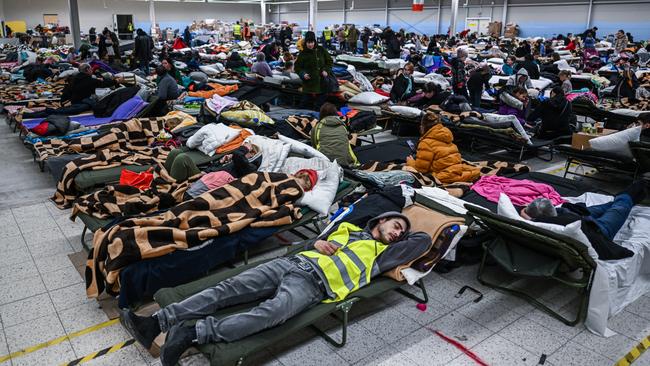
Anna, an engineer who repairs computers in Przemysl, has a family staying in her spare room and would happily take more. Lucian, in his twenties, has already offered to take another refugee, despite having three in his small flat. “You do what you can for these brave people,” he says.
At the holding centre in a former shopping arcade I see dozens more volunteers, many willing to drive refugees across Europe to reunite them with friends or family. I am reminded of the words of the Anglican preacher Henry Melvill. “A thousand fibres connect us with our fellow men; and among those fibres, as sympathetic threads, our actions run as causes, and they come back to us as effects.”
And this is where I glimpse a different narrative from the one that has emanated from Berlin and Paris: a story of Poland not as a backslider from Western values but a defender of them. For was Poland not right to call for more robust sanctions against Russia after the annexation of Crimea? Was it not wise to protest against German dependence on Russian gas? Was it not justified in shuddering as EU powers continued to send weaponry to a man who had levelled Grozny and Aleppo, even after the arms embargo of 2014?
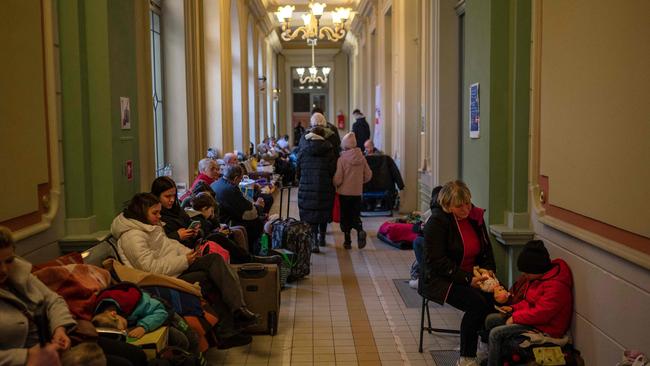
On this last point, the Investigate Europe project has found that EU countries supplied Russia with €346m ($515m) of military equipment, including missiles, aircraft, rockets, torpedoes and bombs, between 2015 and 2020: weapons now being used to wreak devastation. Germany and France were the worst offenders, exploiting “dual use” loopholes to arm Putin. Was this standing up for liberal values or was it the pursuit of naked self-interest at the expense of democratic allies?
As I drive down the eastern flank of this great nation, this is the question that keeps nagging at me. Poland has no natural defences (the Carpathian mountains are to the south), so its 1100km eastern border is hopelessly exposed. This is a nation that was carved up by Habsburgs, Prussia and the Russian empire, obliterated from the map for 123 years, before being oppressed by the Bolsheviks.
How, in this context, could the West have ignored this fledgling democracy’s cries for help? How could we have failed to grasp its anxiety that NATO membership might prove worthless in the event of a Russian invasion? This is a nation that has been betrayed before.

And isn’t it shameful that only now are the big Western powers scrambling to act upon Poland’s advice? It’s a point made by Aleks Szczerbiak, professor of politics at Sussex University. Germany has increased defence spending and suspended Nord Stream 2; Britain has confronted its addiction to dirty Russian money; even the US is hinting at providing what Poland always wanted: a proper NATO base rather than a tripwire presence with little real capability.
It was the poet Robbie Burns who said we need to “see ourselves as others see us”. And this, I’d suggest, is the most conspicuous lesson for Western powers. Poland was not a backslider but a bellwether, shifting to the right out of existential fear as much as incipient racism. As a nation that hasn’t been successfully invaded since 1066, we sometimes find it hard to grasp how fears are passed from parents to children, encoded in stories of suffering and infusing a nation’s psyche.
I abhor the xenophobia and judicial interference of the Law and Justice Party (as do many Poles) and hope it is rejected at the next election. But I also understand why it invested in defence and cybersecurity even as Poland’s eastern neighbour was left exposed. As Szczerbiak put it: “It is impossible to grasp the politics of Poland unless you first take the time to understand its history. The West has consistently failed to do that.”
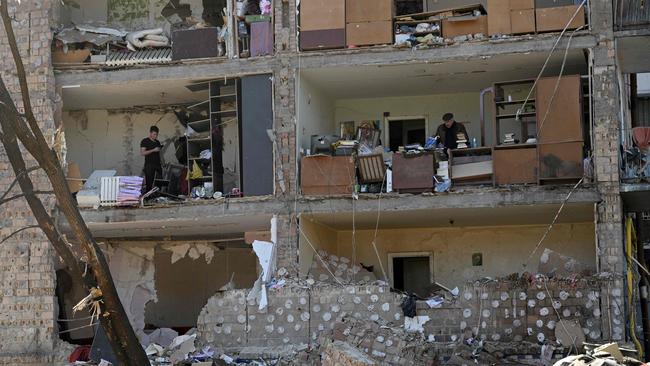
I travel to the Medyka border crossing 60km north and notice a grand piano by the side of the road – an incongruous sight. David is a concert pianist who has driven from Germany to provide solace for the refugees. His playing is dazzling: Billy Joel’s Piano Man and then the Beatles.
As refugees in their hundreds walk past, I am struck once again by their quiet courage. The women smile and the children offer fist bumps. I notice one girl shivering in a maroon scarf and hooded coat; she is holding a grey teddy almost identical to the most beloved toy of my daughter Evie. I reach down to stroke the girl’s hair and notice my cheeks are wet with tears.
As David continues to play, I find myself drifting into a reverie. What, I wonder, will future historians make of a mystifying era when conflict returned to Europe, fears of nuclear war were reignited and an unlikely hero called Volodymyr addressed the world’s legislatures via Zoom while eluding assassination attempts?
At least one thing is clear: Putin has single-handedly achieved what the West failed to bring about in 30 years: unity of purpose. The West stands, more or less, united – even if it is only Ukrainians who are shedding blood to keep Russia at bay. Finland and Sweden are contemplating joining NATO. Switzerland has abandoned neutrality. Sanctions bite ever more deeply (although they should go further). Even the Russian people – at least those not brainwashed by Kremlin propaganda – are leaving in droves, perhaps the greatest brain drain this century.
In the long view of history, this battle will be seen as part of a wider confrontation between liberal democracy and the forces of authoritarianism. Even now, Taiwan is bracing itself against the expansionism of Chinese President Xi Jinping, who has not yet condemned the war in Ukraine. The Chinese politburo is as anxious as Putin to undermine the West, fearful that if the reputation of democracy rises again, its mercenary grip on power will weaken.
These are the stakes we face, aware that, unless we hang together, we will hang separately. Arthur O’Shaughnessy wrote in his Ode: “For each age is a dream that is dying, or one that is coming to birth.” In the new age that started on February 24, it is vital that no one in the West takes our way of life for granted again.
The Times


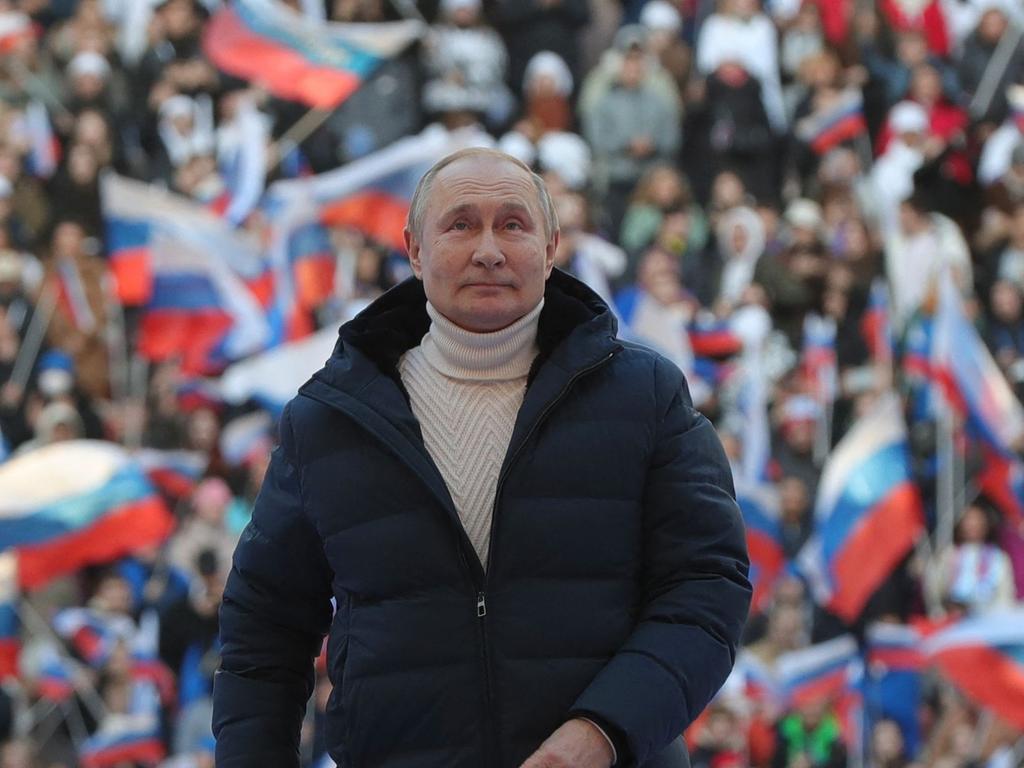
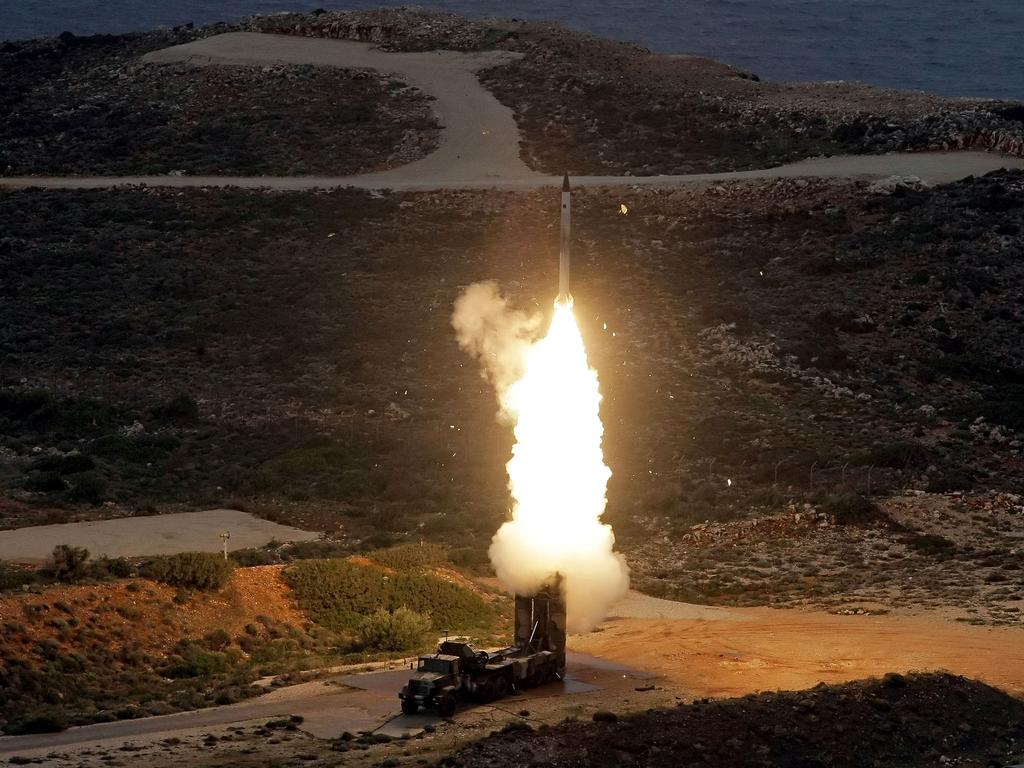



To join the conversation, please log in. Don't have an account? Register
Join the conversation, you are commenting as Logout